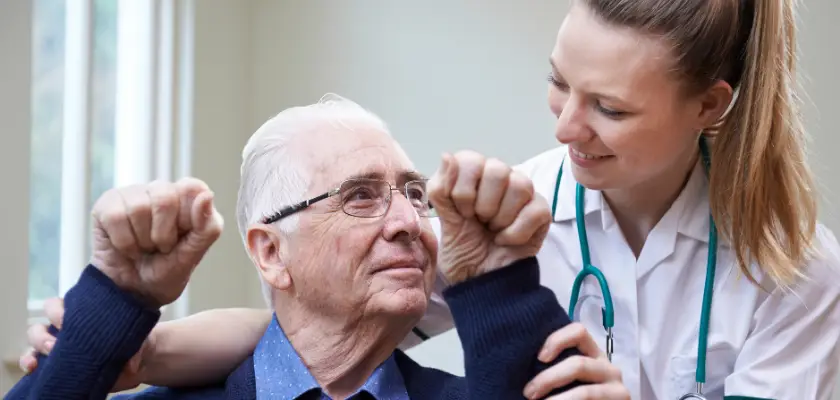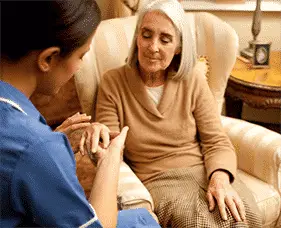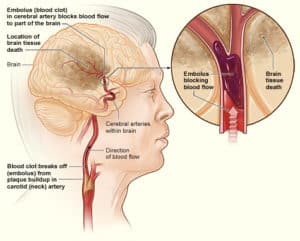During a stroke, every minute counts! Fast treatment can lessen the brain damage that strokes can cause.
By knowing the signs and symptoms of stroke, you can take quick action and perhaps save a life—maybe even your own.
Signs of Stroke in Men and Women: What Are the Signs of a Stroke ?
- Sudden numbness or weakness in the face, arm, or leg, especially on one side of the body
- Sudden confusion, trouble speaking, or difficulty understanding speech
- Sudden trouble seeing in one or both eyes
- Sudden trouble walking, dizziness, loss of balance, or lack of coordination
- Sudden severe headache with no known cause
Related Articles
Castor Oil and High Blood Pressure
Blood Pressure Facts
Gift Ideas For Someone Who Has Had A Stroke
Call 9-1-1 right away if you or someone else has any of these symptoms.
Acting F.A.S.T. Is Key for Stroke
Recognize the Signs and Symptoms of Stroke
Acting F.A.S.T. can help stroke patients get the treatments they desperately need. The stroke treatments that work best are available only if the stroke is recognized and diagnosed within 3 hours of the first symptoms.
Stroke patients may not be eligible for these if they don’t arrive at the hospital in time.
If you think someone may be having a stroke, act F.A.S.T. and do the following simple test:
F—Face: Ask the person to smile. Does one side of the face droop?
A—Arms: Ask the person to raise both arms. Does one arm drift downward?
S—Speech: Ask the person to repeat a simple phrase. Is the speech slurred or strange?
T—Time: If you see any of these signs, call 9-1-1 right away.
Note the time when any symptoms first appear. This information helps health care providers determine the best treatment for each person. Do not drive to the hospital or let someone else drive you. Call an ambulance so that medical personnel can begin life-saving treatment on the way to the emergency room.
Treating a Transient Ischemic Attack: What Are the Signs of a Stroke?
If your symptoms go away after a few minutes, you may have had a transient ischemic attack (TIA). Although brief, a TIA is a sign of a serious condition that will not go away without medical help.
Unfortunately, because TIAs clear up, many people ignore them. But paying attention to a TIA can save your life. Tell your health care team about your symptoms right away.
Here are some FAQs about the signs of a stroke:
What are the signs of a stroke?
The signs of a stroke can be remembered using the acronym FAST:
- Face: Is there any drooping on one side of the face? Ask the person to smile.
- Arms: Is there any weakness or numbness in one arm? Ask the person to raise both arms.
- Speech: Is there any difficulty speaking or understanding speech? Ask the person to repeat a simple sentence.
- Time: If you notice any of these signs, it is important to call 911 immediately. Every minute counts when it comes to stroke treatment.
What should I do if I think someone is having a stroke?
If you think someone is having a stroke, the most important thing to do is to call 911 immediately. Do not wait to see if the symptoms go away on their own. Every minute counts when it comes to stroke treatment.
While you are waiting for help to arrive, you can help the person by:
- Keeping them calm and comfortable.
- If they are conscious, help them sit down or lie down.
- If they are unconscious, turn them on their side to prevent choking.
- Do not give them anything to eat or drink.
What are the treatments for a stroke?
The treatment for a stroke depends on the type of stroke. If the stroke is caused by a blood clot, the goal of treatment is to break up the clot or prevent it from getting bigger. This can be done with medication or surgery. If the stroke is caused by a bleed in the brain, the goal of treatment is to stop the bleeding and reduce the swelling. This can be done with medication or surgery.
What are the risks of a stroke?
The risks of a stroke increase with age, high blood pressure, high cholesterol, smoking, diabetes, and heart disease. If you have any of these risk factors, it is important to talk to your doctor about ways to reduce your risk of stroke.
There are a number of things you can do to reduce your risk of a stroke, including:
- Controlling your blood pressure
- Controlling your cholesterol
- Quitting smoking
- Eating a healthy diet
- Exercising regularly
- Managing stress
- Taking medications as prescribed by your doctor
If you have any concerns about your risk of a stroke, talk to your doctor. They can help you develop a plan to reduce your risk.




